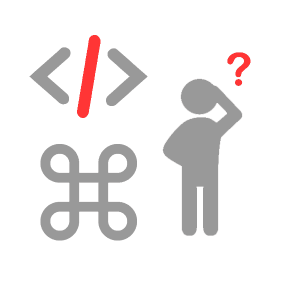

In NLP Embedded Commands are used rather than giving direct instructions, the NLP Practitioner embeds the directives within a larger sentence structure. You can start now to imagine the power of Embedded Commands, especially now you can begin to relax and learn even more.
Embedded commands often are used in a larger sentence structure to deliver them more smoothly and gracefully. The listener will not consciously relaize the directives that have been given to him or her. NLP Embedded Commands.
Here we go. Let’s take a look at the following example:
First of all, there is an assumption in this sentence. You are assuming that the client or person you are working with is beginning to relax. Second, there is a the word “Begin”. This is one from the NLP Adverbs and Adjectives.
So the point being made here is, that in the beginning learning about the Milton Model it may seem confusing. Yet by studying and practicing sentences that work for you, you start to build up your own library of proven working knowledge. Fun right?! NLP Embedded Commands.
As you already discovered now Embedded Commands are used in a broader way and are only part of the message you convey to the listener you are speaking to. So let’s take the opportunity to explain you some more.
Some of you go: ‘Some more of what?’ and that is a right conclusion. Let’s explore in what kind of combinations you are able to utilize NLP Embedded Commands and how you benefit of it. NLP Embedded Commands.
First of all there is the ‘Dance around the Table’, or the Weasel as I like to call it. It starts with statements like: ‘If you were to’, or ‘As you’ and legion examples more. Next we need to provide a command, preferably an embedded command. Examples of these are: ‘Think about’ and ‘Know’.
Now come the State, the Process or Experience. Example of these are: ‘a change of heart’ or ‘away from your beliefs’. You start to see the rhythm in this language pattern, do know you are able now to see a matrix of opportunities to excel in this part and not only this part of the Milton Model.
Or in a more covert and softened way:
This example assumes that you “Start to open your mind” and the rest of the sentence is pinpointed to what you want your client or the person you are working with to take into account.
Embedded commands work best when they are done covertly, not obvious. So, obviously the above statements are not subtle by any standard. You need to learn to incorporate them into a broader daylight. There are ways to embed commands between sentences that hide the command.
For example: When was the last time you were on a vacation and decided that you want to feel absolutely safe immediately after your tickets arrived? Of course, there is also a certain method of delivery and unconscious rapport, both of which are essential for the unconscious to respond to your suggestion. NLP Embedded Commands.
Always, always, always remember to maintain Rapport. Read and record Eye Accessing Cues. Listen to what is being said and do not draw conclusions too hasty. Take the time for your client in your Coaching session. And most of all, keep your eyes on the prize. Keep your client’s goal in mind and realize that you continually have to look for what is NOT there.
NLP Embedded Commands are part of the Indirect Elicitation Patterns, which on their turn is part of the Milton Model. Remember, to increase your efficiency as a NLP Practitioner, know your positive intention for the message you want to convey, build rapport and pay attention on what and how you use language. Leave people and business in a better place that where you found them, every day! Put yourself to work and start making the NLP Meta Model part of your knowledge. The sooner you start, the sooner you benefit. NLP Embedded Commands.
Mind Tools provides NLP Practitioner and NLP Master Practitioner Trainings and Certifications. We educate you according to the renowned, latest and highest standards set by the Society of NLP. We will train you thoroughly in all the corners of Neuro-Linguistic Programming and some extras we learned from Dr. Richard Bandler directly.
Our Licensed NLP Practitioner Training starts in:
On Checkout use the code NLPNOV25DISCOUNT and gain an extra 10% off our already discounted price.